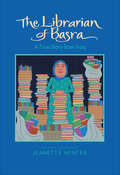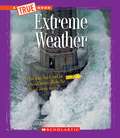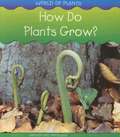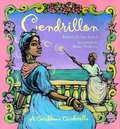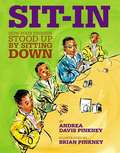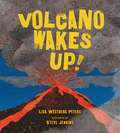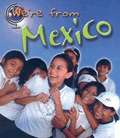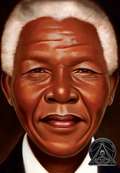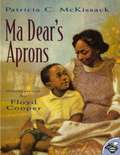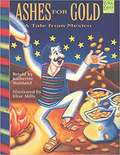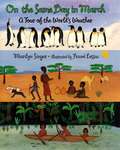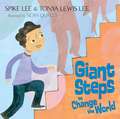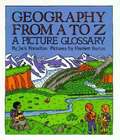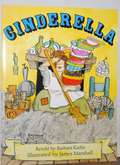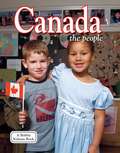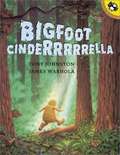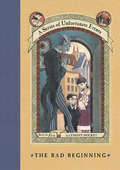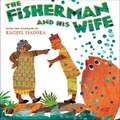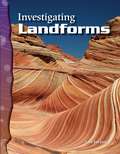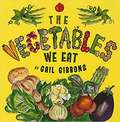Special Collections
District List: DCPS - Second Grade Unit Text List
Description: District of Columbia Public Schools Unit Text List for students in 2nd Grade. #dcps
- Table View
- List View
The Librarian of Basra
by Jeanette Winter Jeanette Winter*ALA Notable Children&’s book 2006 *Celebrated author-illustrator Jeanette Winter weaves a hopeful tale of one woman&’s courageous book rescue. In the Spring of 2003, Alia Muhammad Baker was the city of Basra&’s real-life librarian. She was the keeper of cherished books and her library was a haven for community gatherings. But with war imminent in Basra, Iraq, what could this lone woman do to save her precious books? With lyrical, spare text and beautiful acrylic illustrations, Jeanette Winter shows how well she understands her young audience. This true story of one librarian&’s remarkable bravery reminds us all how, throughout the world, the love of literature and the respect for knowledge knows no boundaries.
Extreme Weather
by Ann O. SquireEvery day, the world's scientists are working to solve some of the most thrilling mysteries on Earth. This True Book series highlights some of the incredible ways that scientists search for answers to our biggest questions. Readers will discover how scientists conduct experiments in extreme situations, how some of the world's most advanced laboratories have benefitted scientists, and much, much more. Most days, you probably don't think too much about the weather. You might wear a coat on a cold day or carry an umbrella when it rains. But weather can be unpredictable. Downpours can flood entire cities, raging winds can knock down buildings, and huge piles of snow can block roads. Readers will find out how scientists study some of the most extreme weather on Earth, from violent tornadoes to deadly hailstorms. They will also learn about some of the most devastating weather events in history. Features: Engaging sidebars highlight some of history's most remarkable scientific discoveries Timelines illustrate the ways our knowledge of science has changed over time Glossaries explain difficult scientific terms in a way that makes them easy to understand Eye-catching images give readers an up-close look at scientific procedures
How Do Plants Grow?
by Louise Spilsbury and Richard SpilsburyLooking inside a seed. We'll look at a cut-open bean seed and talk about the food store and the baby plant and the seed coat. The baby plant in a seed stays safe and warm inside the seed coat until it is ready to start growing, usually in spring when the weather is warm and wet.
Cendrillon
by Robert D. San SouciYou may think you know this story I am going to tell you, but you have not heard it for true. I was there. So I will tell you the truth of it. Here. Now.
Sit-In
by Andrea Davis PinkneyIt was February 1, 1960. They didn't need menus. Their order was simple. A doughnut and coffee, with cream on the side. Courageously defying the WHITES ONLY edict of the area, four young black men took a stand against the injustice of segregation in America by sitting down at the lunch counter of a Woolworth's department store. Countless others of all races soon joined the cause following Martin Luther King Jr.'s powerful words of peaceful protest. By sitting down together, they stood up for civil rights and created the perfect recipe for integration not only at the Woolworth's counter, but on buses and in communities throughout the South.
Volcano Wakes Up
by Lisa PetersPlayful, kid-friendly poems from five alternating points of view explore the volcanic process and its effect on the surrounding land, flora, and fauna. From the lava crickets to the ferns, everyone has something to say about it! Follow one day--from sunrise to moonrise--on the slopes of a young, about-to-shout volcano.
Science-loving kids will get a kick out of this exciting look at an erupting volcano, and the creative poems offer something for everyone.
Mexico
by Victoria ParkerFind out what school and home life is like for children in Mexico. What is the capital city of Mexico? When does Luis go to school? Why does Raul sleep in a hammock.
Nelson Mandela
by Kadir NelsonThis stunning picture book biography of Nelson Mandela by Kadir Nelson is a receipient of the Coretta Scott King Honor award. In this picture book biography, award-winning author and illustrator Kadir Nelson tells the story of Mandela, a global icon, in poignant free verse and glorious illustrations. It is the story of a young boy's determination to change South Africa, and of the struggles of a man who eventually became the president of his country by believing in equality for all people, no matter the color of their skin. Readers will be inspired by Mandela's triumph and his lifelong quest to create a more just world. An author's note at the back retells the story of Mandela's fight against apartheid in simple prose, and takes the story further, including Mandela's Nobel Peace Prize. A short bibliography lists additional sources for readers who want to find out more.
Ma Dear's Aprons
by Patricia C. MckissackThis book captures what life was like for a poor single mother and son in a time before washing machines, cars, and TV sets.
Ashes for Gold
by Katherine MaitlandTricked by a clever acquaintance, a poor Mexican still manages to turn ashes into gold.
On The Same Day In March
by Marilyn Singer and Frané LessacOn the same day in March... Polar bears ride on Artic ice. People in French cafes turn up their faces to the sun. Hailstones roll over Indian hillsides. Rain makes a river in Kenya. On the same day that it's icy cold in the Artic, it's foggy in Louisiana, sunny in Barbados, and blowing wild winds called willy-willies in Austrailia. In this poetic exploration of longitude and weather, with bright and detailed paintings of seventeen different places, Marilyn Singer and Frane Lessac show us what's happening from the poles to the equator-- all on the same day in March.
Top 10 Science Books for Children 2000 (Booklist) and Notable Children's Trade Books in the Field of Social Studies 2001, National Council for SS & Child. Book Council
Giant Steps to Change the World
by Spike Lee and Tonya Lewis LeeEveryone has it in them to be a hero. Everyone who reads about those men and women who stood up for what they believed in, who sacrificed everything for a passion or love, who took a step into a place where no one had ever stood before has what it takes to be among those names. You don't have to be the bravest or the strongest; you simply have to believe in something enough to overcome all odds, to conquer every obstacle and succeed. You need to do what all those people have done before you--jump that first hurdle, write that first word, paint that first stroke. Take that first step. For it is in you to be a hero--the only question is whether or not you know it.
Geography from A to Z
by Jack KnowltonHave you ever wondered what a badland is? What about a gulch? Do you wonder what an isthmus is? Or a seamount? What about the difference between a plateau and a plain, or a knob and a knoll? Well, here are the answers! Images have been removed but image captions are present.
James Marshall's Cinderella
by Barbara KarlinThis Scholastic edition updates the classic Cinderella story and is retold by Barbara Karlin, with colorful illustrations by James Marshall. The happily ever after ending has been updated too!
Canada
by Bobbie KalmanUpdated facts and statistics support this fascinating portrayal of a nation built on immigration. Important issues that must be resolved with the Native peoples are sensitively portrayed.
Bigfoot Cinderrrrrella
by Tony JohnstonIn the old growth forest, a dashing Bigfoot prince searches for his Bigfoot princess. Rrrrrella, who also lives in the forest, would be a perfect match. But can she get past her ugly stepsisters to win the prince's heart?
Wild Horse Winter
by Tetsuya HondaBased on an actual event, this suspenseful story tells the miraculous saga of a herd of beautiful wild horses and details the life of a young colt as it matures and follows the lead of its protective mother to overcome a wild, raging blizzard in the dramatic conclusion of their journey.
The soft paintings combine with the simple text to bring a vanishing breed vividly to life. A wonderful book for reading aloud or for sharing, the story subtly parallels the growth of all creatures and underscores the strong bonds that exist between parent and child.
The Bad Beginning
by Lemony Snicket and Brett HelquistImagine tales so terrible that as many as fifty million innocents have been ruined by them - tales so indelibly horrid that the New York Times bestseller list has been unable to rid itself of them for seven years.
Now imagine if this scourge suddenly became available in a shameful new edition so sensational, so irresistible, so riddled with lurid new pictures that even a common urchin would wish for it. Who among us would be safe?
Begin at the beginning - even if it is a bad one - with the first in A Series of Unfortunate Events.
The Fisherman and His Wife
by Rachel Isadora and Brothers GrimmThe fisherman's greedy wife is never satisfied with the wishes granted her by an enchanted fish.
In the Garden with Dr. Carver
by Nicole Tadgell and Susan GrigsbySally is a young girl living in rural Alabama in the early 1900s, a time when people were struggling to grow food in soil that had been depleted by years of cotton production. One day, Dr. George Washington Carver shows up to help the grownups with their farms and the children with their school garden. He teaches them how to restore the soil and respect the balance of nature. He even prepares a delicious lunch made of plants, including "chicken" made from peanuts. And Sally never forgets the lessons this wise man leaves in her heart and mind. Susan Grigsby's warm story shines new light on an African American scientist who was ahead of his time.
Investigating Landforms
by Lynn GorpLandforms are features on the earth's surface that are made naturally. Mountains, plains, and plateaus are all examples of landforms. The study of landforms is called geomorphology. Scientists can learn about the past and even predict future changes by studying landforms. Today we can take pictures of landforms from airplanes and satellites.
The Vegetables We Eat
by Gail GibbonsGlossy red peppers, lush leafy greens, plump orange pumpkins, and delectable little peas: vegetables come in many shapes, sizes, and colors. Leaf. . .root. . .stem. . . . These are three of the eight groups of vegetables. From how they are planted to how they get to stores, here is a wealth of information about them, including how to plant and tend your own vegetable garden.
This book does not contain images, only image descriptions.
The Honey Makers
by Gail GibbonsCovers the physical structure of honeybees and how they live in colonies, as well as how they produce honey and are managed by beekeepers.
From Seed to Plant
by Gail GibbonsExplores the intricate relationship between seeds and the plants which they produce. [This text is listed as an example that meets Common Core Standards in English language arts in grades 2-3 at http://www.corestandards.org.]
